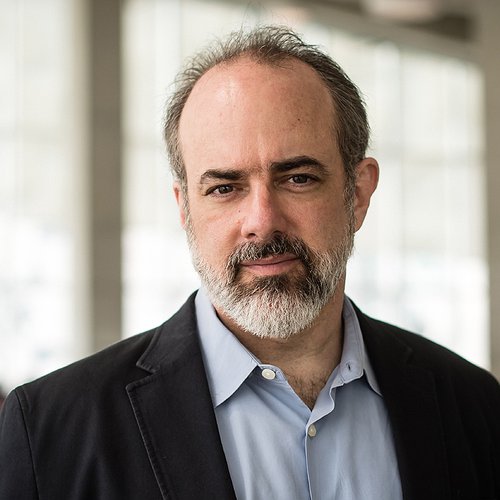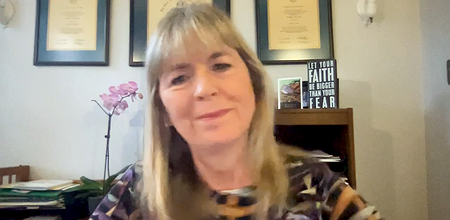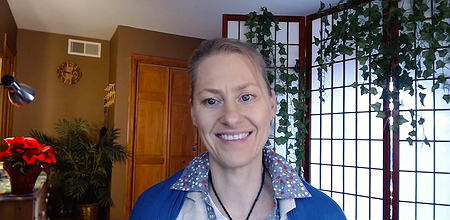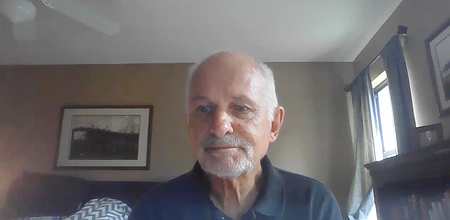A theoretical course illustrated with clinical examples. This course is composed of videos of 5 to 15 minutes each. The PowerPoint of the course to download.
Psychological Treatment of OCD – Best Practices and Recent Advances
Prof Martin Antony, Psychologist
Obsessive-compulsive disorder is a common condition associated with unwanted thoughts, images, or urges and repeated behaviours aimed at reducing anxiety or preventing danger
Excerpt:
- 5h of continuing education
- 34 lessons that last from 5 to 15 minutes each
- 1 certificate of achievement
- 1 PowerPoint
- 1 bibliography
- 1 course evaluation
- 4 months access - automatically extended until you complete the course
- 7-day money back guarantee
- 97% of participants who completed the satisfaction survey declare they would recommend this course to a colleague
Overview
Obsessive-compulsive disorder (OCD) is a common condition associated with unwanted thoughts, images, or urges (obsessions) and repeated behaviours aimed at reducing anxiety or preventing danger (compulsions). Unfortunately, clinicians are often not up to date with best treatment practices for this condition. Clinicians need to know about the theoretical foundations and practical application of well-established behavioural approaches (e.g., exposure and response prevention) and cognitive approaches (e.g., experiments, cognitive restructuring), as well as emerging acceptance and mindfulness-based approaches. Assessment strategies will also be reviewed.
About the expert

Prof Martin M. Antony is professor in the Department of Psychology at Ryerson University, provincial clinical lead for the Ontario Structured Psychotherapy Program, and president of the Association for Behavioral and Cognitive Therapies.
Previously, he was founding director of both the Anxiety Treatment and Research Clinic and the Psychology Residency Program at St. Joseph’s Healthcare Hamilton. He is a fellow of the Royal Society of Canada, and previously served as president of the Canadian Psychological Association. He has published over 30 books and over 250 scientific articles and chapters in areas related to cognitive behavior therapy and anxiety-related disorders.
He has given more than 425 presentations to audiences across four continents, and has been interviewed, featured, or quoted more than 450 times in various print, radio, television, and online media outlets, including CBC, CNN, Globe and Mail, National Post, Toronto Star, New York Times, Washington Post, Scientific American Mind, and many others.
Learning objectives
- Describe best practices in the assessment of OCD
- Describe evidence-based behavioural strategies for treating OCD, such as exposure and response prevention
- Describe effective cognitive strategies for treating OCD, such as cognitive restructuring and experiments
- Describe emerging mindfulness and acceptance-based strategies for OCD and strategies for resolving ambivalence, promoting engagement, and dealing with treatment-interfering behaviours
Learning material
Syllabus
- PowerPoint
-
Overview of OCD
- 1. Presentation
- 2. Overview of OCD
- 3. Problems that are not classifies as OCD-related
- 4. Other features of OCD
- 5. Comorbidity
- 6. Gender, culture and others
- 7. Etiology of OCD
- 8. Cognitive model of OCD
- 9. Factors in OCD
- 10. Assessment of OCD
-
Recommendations for the OCD treatment
- 11. Psychological treatment of OCD
- 12. Presenting the treatment
- 13. Exposure to fear
- 14. Safety behaviors
- 15. Variability and retrieval cues
- 16. Other recommendations
- 17. Imaginal exposure
- 18. Ritual prevention
- 19. Respond to request for reassurance
- 20. Sample treatment plans
-
Adapting OCD to special situations
- 21. Trouble shooting
- 22. Treating OCD and autism
- 23. Adapting treatment for Covid-19
- 24. Cognitive strategies
- 25. Questions on cognitives strategies
- 26. Behavioral experiments
- 27. Other cognitive strategies
- 28. Treating OCD in groups
- 29. Mindfulness and acceptance-based treatments
- 30. Concerns about treatment
- 31. Motivational Enhancement for OCD
- 32. Adapting CBT for OCD in children
- 33. Comparing and combining CBT and medication
- 34. Additional recommended readings
- Bibliography
CE Credits
Download a certificate of successful completion.
Audience
This training is intended for mental health professionals.
Your comments
"A great course - Thank you!!"
A psychologist (Canada)
"Excellent platform, easy to use. Knowledgeable speaker. Thanks!"
A couple therapist (Canada)
Registration
Ask a question
Do you have a question? Then email us at contact@asadis.net
Frequently asked questions
-
How long do I have access to the course?
After your registration, the course is accessible anytime and from anywhere for 124 days. And if that’s not enough, we’ll automatically extend your access.
-
When does the course start?
That is entirely up to you! When you buy a course, you'll receive an access link that you can activate when you want.
-
Is there a student rate?
Yes there is! To learn more, email us at contact@asadis.net.
You may also be interested in:
Legal notice
The courses offered by ASADIS are accredited by different professional organisations. In addition, ASADIS is approved by the Canadian Psychological Association to offer continuing education for psychologists. ASADIS maintains responsibility for the program.
The CPA’s approval of an individual, group, or organization as a CE Sponsor or Provider is restricted to the activities described in the approved application or annual report form. The CPA’s approval does not extend to any other CE activity the Sponsor or Provider might offer. In granting its approval, the CPA assumes no legal or financial obligations to Sponsors, Providers, or to those individuals who might participate in a Sponsor or Provider’s CE activities or programs. Further, responsibility for the content, provision, and delivery of any CE activity approved by the CPA remains that of the CE Sponsor or Provider. The CPA disclaims all legal liability associated with the content, provision, and delivery of the approved CE activity.




